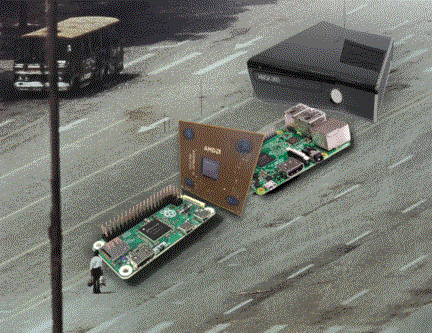The light on Linux®
# What?
Copacabana Linux is an independent Linux® distribution focused
on sanity, modularity and
liberty (as in Enlightenment).
It aims to be a complete, malleable and yet simple operating system
solution for use in diverse environments, such as workstations,
laptops and servers.
We, since the first day of development, drew
inspiration from paradigms used for many years for designing stable
operating systems, therefore, even though many of the utilities that
are present on Copacabana being new/newly maintained, all of it are
being made aiming for trustability.
For distribution, we use a *BSD-inspired model — based on stages,
not on the "everything is a package" paradigm — for some general
parts (e.g.: base system), since it's fairly simpler to package,
distribute and maintain.
For other packages, a new approach based on the SVR4 packaging
model is being currently developed.
# How?
Copacabana is made following the same building model that Linux
from Scratch/Musl-LFS follows, that is building the distribution in
three parts: a cross-compiler; a set of basic tools and the final
system, explaining it in a much more simplified form.
But, while Linux from Scratch don't in fact have a build
consolidation, Copacabana makes use of a complete, but yet rather
simple and hackable,
build system.
If you're interested in building from scratch and/or porting
Copacabana for other architecture, please read "Porting Copacabana to other architectures".
# Download a copy
The newest release is ,
released on .
Currently, we don't own any servers, so you may have to keep an
eye at the Downloads
page.
In any case, the GitHub release page is a safe bet:
https://github.com/Projeto-Pindorama/copacabana/releases/tag/X.X
Do you have a server and want to mirror Copacabana releases?
See the "Chip in!" section and
send us a issue.
Of course, you can also clone the git repository and build it from
source using the build system scripts — please, take a read at
"Porting Copacabana to other architectures".
$ git clone -b [X.X|master] https://github.com/Projeto-Pindorama/copacabana.git
# Chip in!
We can't do this alone. Here are ways of how can you chip in.
## Translate our content
Speaks something besides the King's English? Português?
Español? Català? Français? Italiano? Suomi? 日本語? 繁體字? أَنْدَلُسِيّ؟ עברית?
Chip in to internationalize our software and documentation!
Everything is public in our repositories. Yeah, that's right: no
closed groups, sub-projects nor mailing lists.
It's just a matter of translating and pull-requesting it.
## Porting Copacabana to other architectures
Copacabana main focus is to be a multi-purpose Linux®-based and
UNIX®-compatible operating system and, after all, to be running in
multiple places over the World.
And you can help us to achieve this porting Copacabana to
other architectures.
Currently, Copacabana is getting binary releases for x64; our
current goal is to get binary releases for ARM and i386 (x86)
architectures.

Recompiling Copacabana for another host isn't something
extremely hard, since, besides all the scripts and patches are open
at the git repository, the process itself is being described in
more depth at the Copacabana tabula,
with additional sidenotes and troubleshooting.
If you've made a port, you can announce it at the Pindorama mailing
list at FreeLists.org or, preferably, via an issue at the Copacabana
development repository using the "port" label.
## Spread the word around!
We strongly encourage that you use these badges freely, both in the 'net or in the real life.
Put them in your website, stick them on your workstation or laptop, use it freely within the bounds of good taste and common sense.
If you're going to use these in your website, you may wish to take 110x35px badges to embed in the footer, or, if you're going to put in some article, the 256 colours version, which is far smaller than the full version and don't have a significant loss.



Have you been using some of them? Tell us about.
(Still likes the oldies, old sock? We still have 'em around here)# On the media!
Sometimes we get media coverage, take a look.
## January 2024
- Interview with Glaucus Linux author: Firas Khana, Toca do Tux, 13th January 2024
This time, Prof. Silveira interviews Firas Khalil Khana (firasuke) about the glaucus project — with which Pindorama has been cooperating since October 2023 and intends to continue it further — and Copacabana is cited as one of the systems utilizing the Heirloom Toolchest NG.
## December 2023
- firasuke/awesome: A curated list of awesome projects, firasuke's GitHub account, 9th December 2023
Copacabana is one of the projects on the list, which is
awesome.
Got it? "Awesome", "awesome lists"... Perhaps this isn't so funny
as I thought.
## February 2022
- O Paradoxo do Navio de Teseu no mundo open source, Toca do Tux (Blogspot), 4th February 2022
Prof. Silveira, inspired by the interview revolving Copacabana — and the Pindorama project per se —, wrote an article about forks and copyrights issues in open source, with the approach of drawing a parallel amid the Ship of Theseus paradox and some cases in software projects that made use of forked code. It's a very interesting article.
## January 2022
- Conheça o projeto #Pindorama, Toca do Tux, 23th January 2022
